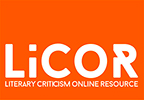Given the pervasive and profound role narratives play in all aspects of human life, the ability to identify how these narratives are constructed and how their construction enables them to support one set of world views to the exclusion of others – an ability known in shorthand as narratology (literally ‘the study of narrative’) – is evidently a very valuable life skill. The analytical tools this area of study has developed help us investigate how individual narratives tell their stories; they remind us, too, that no narrative is objectively true – and that no narrative world is objectively real either – in and of itself. Rather, a narrative and its narrative world only acquire whatever appearance of truth and reality they might possess from their deployment of the artistic devices that constitute the basic elements of narrative, such as plot and story, point of view, characterisation and setting. By paying careful attention to these devices, we can uncover both the girders and mainframes by which any given narrative worldview is underpinned and held in place, and we can therein locate the source of its persuasive power.
For most of this module we will focus on the study of narrative in works of literature. From what we have said about narrative so far, however, we hope the skills you will develop as a result of this study will set you in good stead to analyse the narratives you encounter on a daily basis out in the world and in other forms of art as well.
